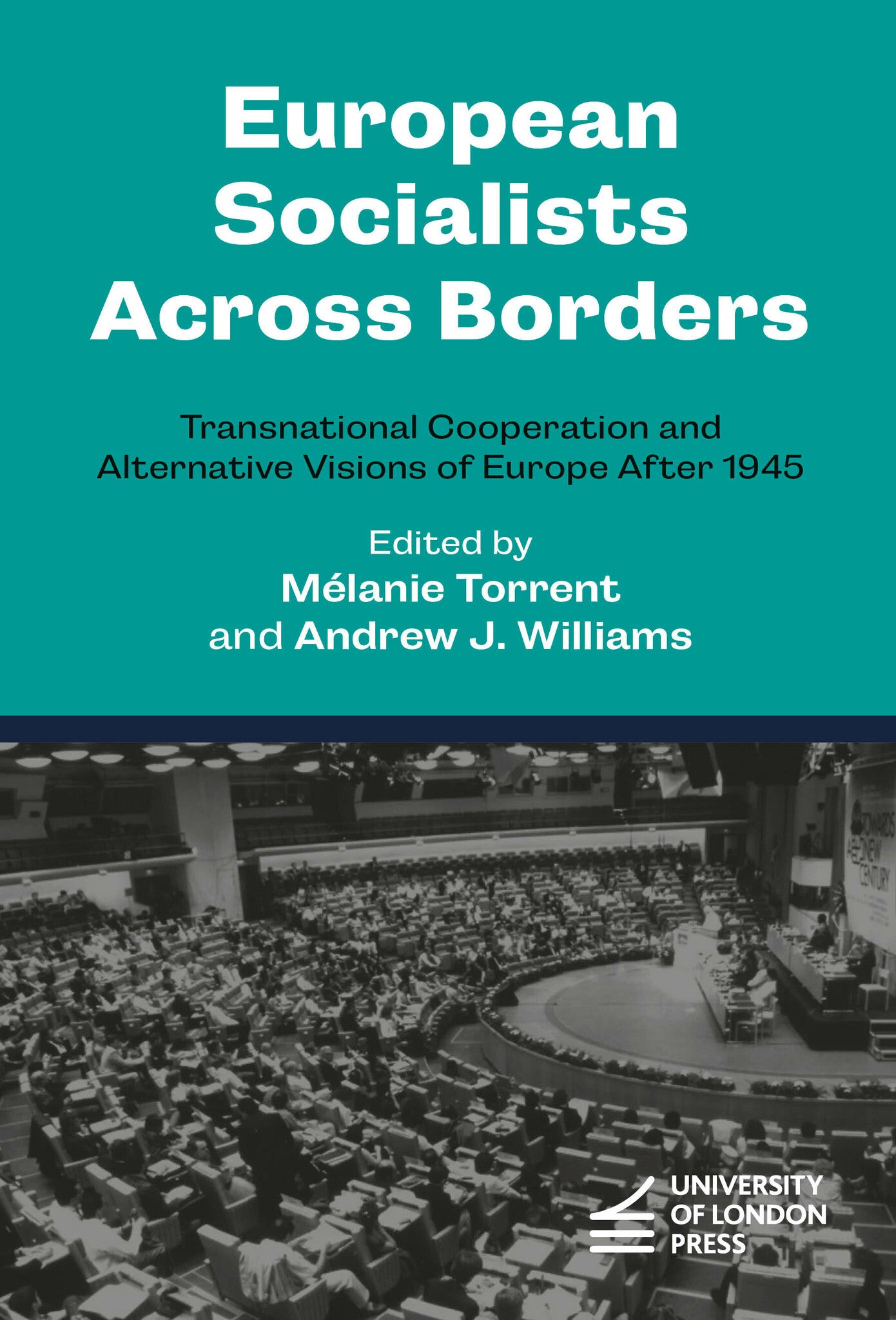We're sorry. An error has occurred
Please cancel or retry.
European Socialists Across Borders

Some error occured while loading the Quick View. Please close the Quick View and try reloading the page.
Couldn't load pickup availability
- Format:
-
16 January 2025

From postwar debates on institutionalised cooperation in Western Europe to the ambitions of the European Union in the post-Cold War era, this volume investigates the impact of socialist networks on European construction and integration, and the role of European socialism in international (dis)orders. It assesses how socialist networks were influenced by relations with socialist parties and groups outside Europe, and how they navigated local, national and global politics. Collectively, the chapters explore four main areas: the relationship between the ideals of European cooperation and daily, routine and domestic politics; the shifting definitions of political elites and popular understandings of Europe, including the influence of people of African, Caribbean and Asian descent on the transformation of socialist thought, policies and practices in the European (ex-) imperial powers; the extent to which European socialists attempted to propose a postcolonial, postimperial agenda for Europe; and how European institutions were used, and with what results, by socialists and their contacts.
Reflecting on the successes and failures of transnational processes of socialisation, the role of cultural intermediaries and bridge-builders, and the reasons behind misunderstandings, failed projects and missed opportunities for peace and equality, the book examines how socialist politicians and activists conceived of Europe’s role in worldmaking in the transition out of conflict and empire. In doing so, the volume contributes to a better understanding of, and support for, cooperation across borders.

HISTORY / Europe / General, European history, POLITICAL SCIENCE / Political Ideologies / Communism, Post-Communism & Socialism, Left-of-centre democratic ideologies

The book shows the core role of individual European socialists and their wider social and professional networks in shaping debates on early European integration and decolonisation, nuancing such key concepts as bi-polarity and shifting the focus of our thinking to alternative European (international) policies and roads not taken.
- Introduction
Mélanie Torrent and Andrew J. Williams
Part I. European socialism in war and peace
* 1 The Labour party and the SFIO in London in the 1940s
Andrew J. Williams * 2 Transwar continuities: The Mouvement Socialiste pour les Etats-Unis d’Europe (MSEUE) and Socialist Networks in the Early Cold War
Benjamin Heckscher and Tommaso Milani
Part II. Paths not taken? European socialists and the politics of worldmaking at the end of empire
- 3 Europe re-imagined? Claude Bourdet, France-Observateur and British critics of the Algerian war
Mélanie Torrent - 4 Social Activism in the Age of Decolonisation: Basil Davidson and the Liberation Struggles in Lusophone Africa, c. 1954–1975
Pedro Aires Oliveira - 5 Olof Palme, Sweden, and the Vietnam war: An outspoken socialist among European socialists
Lubna Z. Qureshi
Part III. Redefining Europe and reassessing Europeanisation: socialist readings of internationalism and liberalism
* 6 European socialists and international solidarity with Palestine: towards a socialist European network of solidarity in the 1970s and 1980s?
Thomas Maineult * 7 Black British Labour Leaders and the Europeanisation of antiracism, 1986–1993
Pamela Ohene-Nyako * 8 From Dark to Light: The Fate of Two European Socialist Employment Initiatives in an Age of Austerity
Mathieu Fulla



